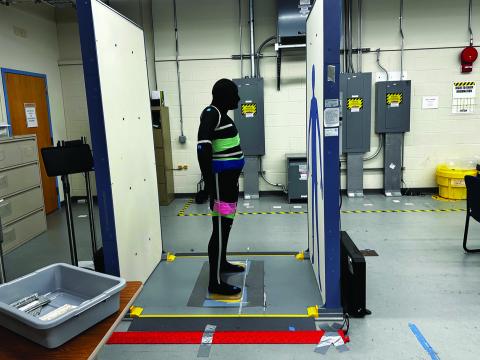Small Business Tips for Department of Homeland Security Contracting
Small business contracts make up 32 percent of the U.S. Department of Homeland Security’s (DHS’s) business, with an average of 3,500 new contracts added every year. But it can be challenging for small companies to take advantage of these opportunities. Breaking into the DHS market as a small business is not impossible, according to Bob Namejko, industry liaison, DHS, but it is difficult.
Small business contracts make up 32 percent of the U.S. Department of Homeland Security’s (DHS’s) business, with an average of 3,500 new contracts added every year. But it can be challenging for small companies to take advantage of these opportunities. Breaking into the DHS market as a small business is not impossible, according to Bob Namejko, industry liaison, DHS, but it is difficult.
Namejko says that one of the most important things a company can do when submitting a proposal to the DHS is to differentiate itself from its competition. The company not only needs to know who the competition is but also how to read between the lines when the request for proposal (RFP) goes out.
The DHS doesn’t always know exactly what it wants, Namejko acknowledges, but when the department sends out a draft RFP asking for comments, input from industry should result in a better final document. Unfortunately, many companies believe that commenting will provide insight into their strategy and put them at a competitive disadvantage, so they don’t respond. As a result, the published RFP is typically no different than the draft, he says. “If you did not respond to the draft, don’t complain about the RFP,” he emphasizes.
“It is important to get your name in front of contract specialists if you are tracking something,” Namejko recommends, adding that “30 percent of specialists have one to five years of experience and need to be taught about you.” Electronic copies of corporate information work better than paper. If a vendor asks a contract specialist to send information on to the program office, paper probably will not make it there but electronic will.
“If you don’t win, it is because you did not submit a good proposal showing the differentiators or you did not have the right pricing,” he says. “Protests make no sense, because DHS has crossed all T’s and dotted all I’s,” and protests just slow down the process, he explains.
The most important thing to do if you lose is to ask for a debriefing in person, Namejko says. When there, ask questions. “We cannot tell you why others won, but we can tell you why you lost. The debriefing is for you to get better, and as a result, you will give us better proposals down the pike,” he suggests. If the DHS is not being responsive, Namejko advises, complain and take it up a level if necessary. “Complaining is not going to knock you out of contention on the next contract,” he relates.
Part of building quality communications with industry is working to make the Acquisition Planning Forecast System better in the future, Namejko explains. The forecast of contract opportunities includes projections for all anticipated contract actions above $150,000 that small businesses may be able to perform under direct contracts with the DHS or perform as part of subcontract arrangements with the department’s large business prime contractors. Unfortunately, not all program offices in the DHS are vigilant about updating the contracting opportunities, and part of the problem has to do with the uncertainty the government has operating under a continuing resolution. As a result, many offices are holding back. More opportunities are coming, and it is being updated as soon as the information is in, he promises. Improvements to the system will include input from industry, but Namejko believes that the timetable for improvements is probably 2014.
Government has to address the concerns of industry to improve the procurement process. Delays are killing business, he says, and the DHS needs to train in business processes from the contractor’s perspective. Other areas that need improvement include expediting the security vetting process and ensuring consistency between program offices and procurement offices. The DHS needs to become less dogmatic so it receives innovative solutions.
Namejko offered his recommendations regarding the DHS as part of the AFCEA Small Business Committee program to improve communications between government and industry. For more information on how to engage with the DHS, download DHS Quality Communications With Industry.




Comments